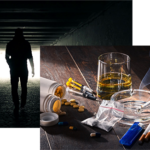Relapse is a common challenge in the journey to overcoming substance abuse. For individuals seeking support in their recovery, understanding the dynamics of relapse and how to manage it effectively is crucial.
Understanding Relapse
Relapse is a normal component of the healing process, not an indication of failure. Many people experience setbacks on their path to sobriety. Recognizing that relapse can happen to anyone can help reduce the stigma and guilt associated with it.
Relapse often occurs in three stages: emotional, mental, and physical. Each stage presents unique challenges and requires different strategies to overcome. Emotional relapse involves negative emotions and behaviors that can lead to a mental relapse, where the individual starts thinking about using substances again.
The Importance of Early Intervention
Early intervention is key to preventing relapse. Identifying the early signs of emotional or mental relapse can help individuals seek help before it progresses to physical relapse. Common signs include increased stress, isolating oneself from support systems, and revisiting old patterns of behavior.
Having access to a supportive environment, such as a Rehab Center, can make a significant difference. Early intervention programs often include counseling, support groups, and educational workshops to help individuals stay on track.
Building a Strong Support System
A strong support system is essential in the fight against relapse. Surrounding oneself with positive influences can provide the encouragement and accountability needed to maintain sobriety. Family, friends, counselors, and support groups all play a vital role in this network.
The Best Rehabilitation Center offers various support services designed to build a robust support system. These services include family therapy sessions, peer support groups, and access to counselors who specialize in addiction recovery.
Setting Realistic Goals
Establishing attainable goals can provide rehabilitation with a sense of direction and purpose. Short-term goals can be as simple as attending weekly support meetings or practicing mindfulness daily. Long-term goals might include rebuilding relationships or pursuing a new career.
Goal-setting should be a collaborative process involving the individual and their support network. This ensures that the goals are realistic and aligned with the individual’s capabilities and aspirations.
Maintaining a Healthy Lifestyle
Maintaining a healthy lifestyle can dramatically lower the chance of relapsing. This includes eating a healthy, balanced diet, exercising frequently, and getting enough sleep. Physical health is closely linked to mental well-being, and neglecting it can increase the likelihood of relapse.
Nutrition plays a critical role in recovery. A diet rich in fruits, vegetables, lean proteins, and whole grains can improve mood and energy levels, making it easier to cope with stress.
Continuing Therapy and Counseling
Ongoing therapy and counseling are crucial components of long-term recovery. Regular sessions with a therapist can help individuals work through underlying issues that contribute to substance use. Cognitive-behavioral therapy (CBT) and other evidence-based therapies are effective in addressing these issues.
Rehab Center offers various therapeutic options tailored to individual needs. Continuing therapy after completing a rehabilitation program can provide ongoing support and guidance.
Engaging in Meaningful Activities
Engaging in meaningful activities can provide a sense of fulfillment and purpose, reducing the temptation to revert to old habits. Volunteering, pursuing hobbies, and participating in community events are excellent ways to stay engaged and connected.
Staying active and involved in the community can also help build new social networks that support a sober lifestyle. Many rehabilitation centers offer programs that encourage participation in such activities.
Utilizing Relapse Prevention Programs
Relapse prevention programs are designed to provide ongoing support and education to help individuals maintain their sobriety. These programs often include regular check-ins, support group meetings, and access to educational resources.
The Best Rehabilitation Center in South Kolkata offers comprehensive relapse prevention programs tailored to individual needs. These programs are designed to provide continuous support and resources to help individuals stay on track.
Staying Connected with the Recovery Community
Staying connected with the recovery community provides ongoing support and encouragement. Participating in support groups, attending recovery events, and staying in touch with peers from rehabilitation programs can reinforce a commitment to sobriety.
The Rehab Center in Kolkata organizes various events and activities to keep individuals connected to the recovery community. These opportunities allow individuals to share their experiences, gain new insights, and receive support from others on the same journey.



